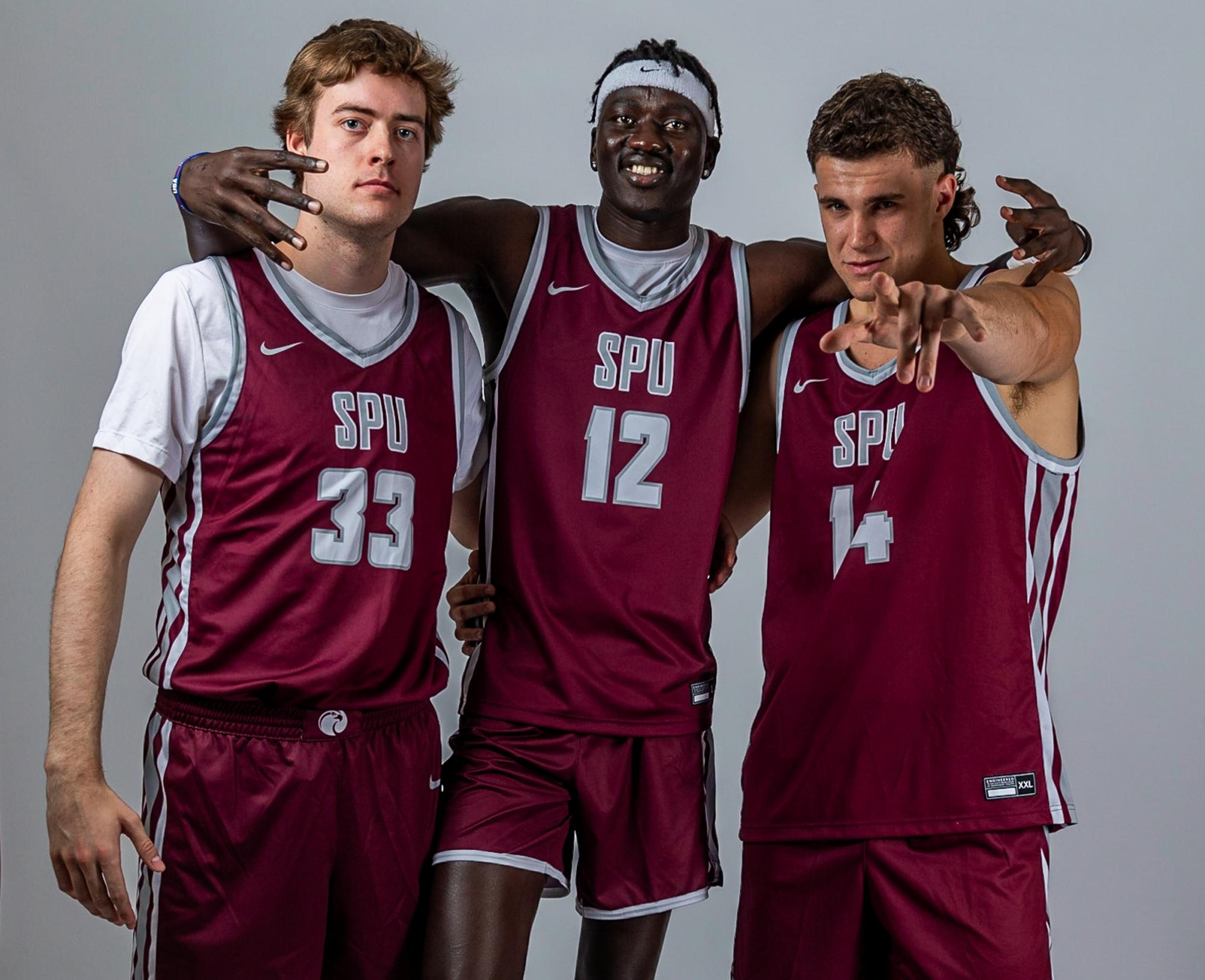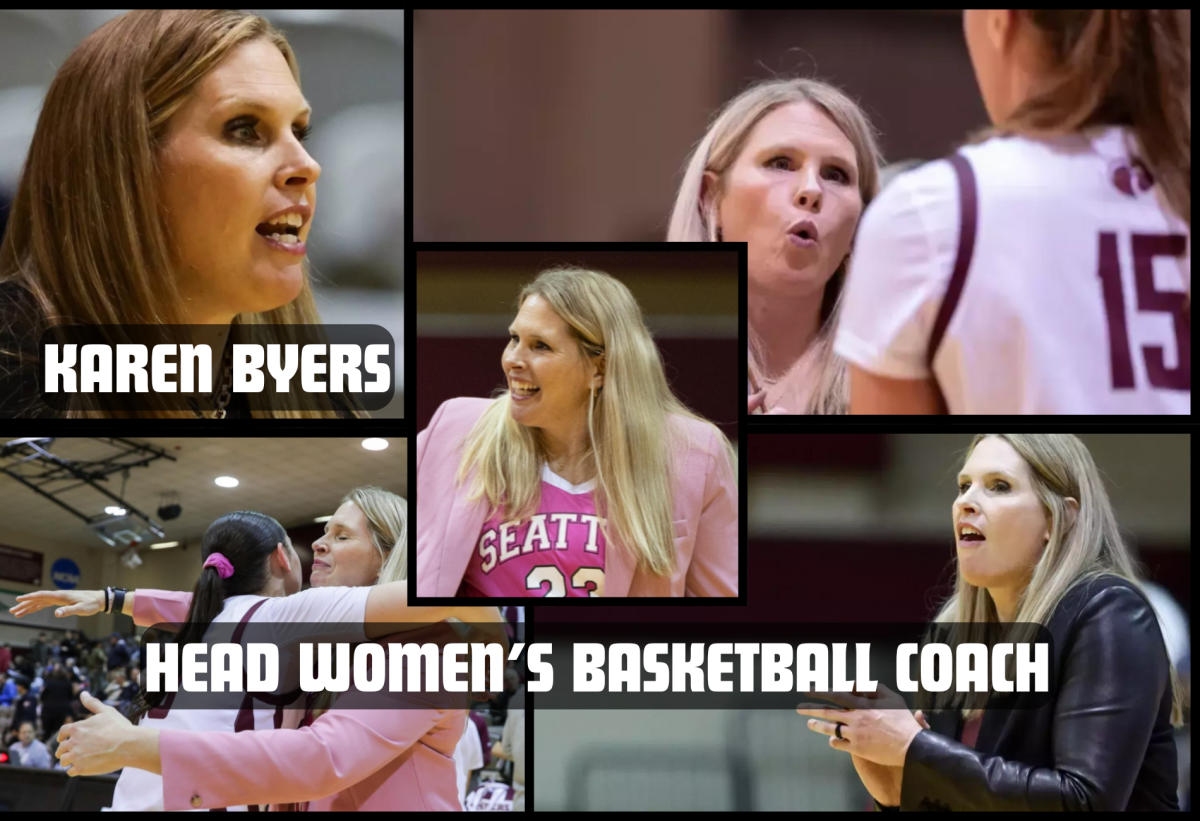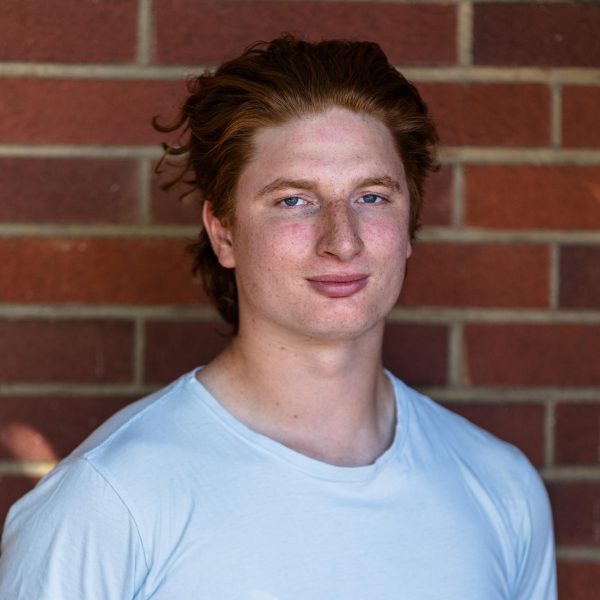
There are many athletes at Seattle Pacific University with various backgrounds and origins, including several of the men’s basketball players, who grew up in other countries and different basketball environments.
Nikias Schönerstedt, a sophomore business major who plays forward for the SPU men’s basketball team, comes from Austria. In Austria, instead of youth basketball teams being affiliated with schools, there are local clubs and professional teams divided into age groups.
“In Europe, it’s mostly every two years, so for youth teams, you play under 10, under 12, 14, 16, 19. That’s normally how it works,” Schönerstedt said. “And then after that, you have professional teams, men’s teams, and they can get anybody. You can play there when you’re only fifteen, or you can play there when you’re 35.”
Schönerstedt played for the Arkadia Traiskirchen Lions in the 2018-2019 and 2019-2020 seasons. He mentioned that in Austria, there is a lot of passion surrounding the pro teams.
“When I played, we had a fan club. They brought flags to all the games and had chants and stuff like that, so that was pretty cool,” Schönerstedt said. “But I feel like, also, here in the U.S., there are some passionate fans.”
Ultimately, Schönerstedt said that he prefers the American style of youth basketball.
“Here, you guys play for your high school or your university, and it’s a lot better because it’s connected, school and athletics are connected with each other,” Schönerstedt said. “Back in Austria, you have to figure things out for yourself, try to make everything work with school and sports.”
James Agany, a sophomore business finance major from South Sudan who plays center for the men’s team at SPU, says that he never played basketball in his home country.
“When I was out there, I never played basketball. I started playing basketball in 2017 in Kenya. Then, when I moved here, that’s when I really played more organized basketball,” Agany stated.
The number one sport in South Sudan is soccer, not basketball. Despite this, basketball has been growing rapidly in South Sudan, ever since longtime South Sudanese NBA player Luol Deng became president of the South Sudan Basketball Federation in 2019.
In 2023, the South Sudan national team played in the International Basketball Federation (FIBA) World Cup. They ranked 17th, barely missing out on making it to the second round. The team also qualified for the Paris 2024 Summer Olympics.
Deng has brought in a lot of investment into equipment, courts, programs and coaches in South Sudan, and these are exactly the kinds of things that Agany says can help expand basketball, especially in places like South Sudan.
“If we spread basketball globally, and have support to all the places, I think that would be good, because we have a lot of tall people in my country, South Sudan, especially where I come from [Lakes State],” Agany noted. “I never played basketball growing up. I started playing basketball late, but it was hard. If I started earlier, my basketball skills could be different from now.”
According to Trace Evans, a junior accounting major from Australia, who plays guard for the team, basketball in Australia is organized in a similar way to European basketball.
“Back home, it’s clubs. So you might play basketball at school, but the majority of your training and playing is going to be done through a club,” Evans said. “Each city has their own clubs and rep teams and then you play against other teams.”
Evans also notes that Australian basketball tends to have a different playing style than American basketball.
This difference is especially salient at both the Division I and professional levels in the United States, as teams often build around one or two players who are significantly better than the rest of the team. At the Division II level, however, teams such as SPU have a more team-centered approach similar to how the game is played in Australia, which is something that Evans likes.
“I definitely prefer the more Australian or European style where everyone touches the ball and everyone gets involved,” Evans stated. “And I feel like, as a college here at SPU, we play that style, which kind of goes against the grain of American basketball.”


















































































